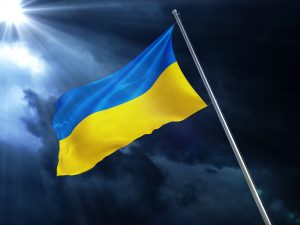It has been a month since Russia started shelling Ukraine, and while the rest of the world is worried about the Ukrainians and their statehood, Central Asians are concerned about the fate of Central Asian labor migrants in Russia. They are concerned about the implications of the conflict on the remittances that families in Central Asia are so dependent on, about the possible return of migrants as Russia’s economy enters a likely long-term contraction, and about the migrants themselves — who may get pulled in the conflict.
On February 25, a self-recorded video of an Uzbek-speaking male in his 50s appeared to show him driving a Russian military truck into Ukraine. In the two-minute video he talked about being hired by the Russian armed forces as a contractor for three months in exchange for a Russian passport, housing, and a salary.
Russia indeed passed a law two months ago that reduced the timelines for reviewing applications for Russian citizenship from 12 months to three months if an applicant signs a contract with the Russian military. However, the law does not guarantee Russian citizenship to applicants after the expedited review process, and it seems that caveat is not necessarily being relayed to migrants clearly.
In a follow-on conversation, the individual in the video said that he learned about this opportunity through UzMigrant, a YouTube channel with more than 357,000 subscribers that is popular among labor migrants from Uzbekistan. Other reporting confirmed that the recruiting organization promises Russian citizenship in return for short contractual service in the Russian military. The jobs that migrants are invited to fill are reportedly for support roles, such as drivers and maintenance workers.
No official commentary followed from the Uzbek government about the extent of recruitment activities of Uzbek citizens, but the Justice Ministry of Uzbekistan issued a statement several days after the video reminding citizens that foreign military service is a crime punishable with three to five years in prison. This was a clear warning to Uzbek citizens to head off large entrance of migrants into the war in exchange for Russian citizenship, unless they are ready to face prosecution in Uzbekistan.
In Kyrgyzstan, lawmakers have been more transparent regarding recruitment activities aimed at their citizens and compatriots. A lawmaker on March 7 said that labor migrants from Kyrgyzstan were being pressured to join the Russian armed forces and the country should be ready for the exodus of those individuals from Russia back to Kyrgyzstan. Although not clarified in the statement, those individuals are most likely are holders of dual Kyrgyzstan-Russia citizenship, which enables the Russian government to impose pressures on Kyrgyz migrants more readily.
On March 8, news broke about the first Kyrgyz victim of the Ukraine-Russia conflict when a 19-year-old naturalized Russian citizen from Kyrgyzstan was killed in Ukraine during his service in the Russian Army. Similar news in relation to citizens from Tajikistan also appeared on March 4, when at least two Russian citizens in their 40s originally from Tajikistan were killed in Ukraine while serving in the Russian military under a contract. Those were just the first known to be killed in the conflict.
Russia does not lack ethnic Central Asians who are either labor migrants in Russia or hold dual citizenship to ease their living and employment conditions. The number of naturalized Central Asians in Russia has increased in recent years. For example, in 2021, 19,200 Kyrgyzstan citizens received Russian citizenship and the same year, 103,700 citizens of Tajikistan received Russian citizenship. In 2020, 23,000 Uzbekistan citizens became Russian citizens.
The ongoing war in Ukraine will likely mean continued reports of recruitment and pressures on migrants from Central Asia, as well as news about their deaths in the war. Many of the Central Asians who are joining the Russian military are blindly responding to economic incentives which are arguably based on half-truths.
































